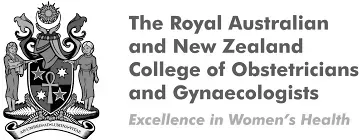Paediatric & Adolescent Gynaecology
Why is Young Women’s Health Important?
Paediatric and Adolescent Gynaecology is a subspecialty of gynaecology that focuses on the unique healthcare needs of children and adolescents, including those related to their reproductive and sexual development.
Addressing gynaecological concerns specific to paediatric and adolescent populations is important, as they have unique physiological and psychological considerations compared to adults. The reproductive and sexual health of children and adolescents is critical to their overall well-being, and prompt diagnosis and treatment of gynaecological conditions can prevent long-term health problems.
Scope of Paediatric & Adolescent Gynaecology
Paediatric and Adolescent Gynaecology is crucial for early diagnosis and treatment of gynaecological issues, which can have long-lasting impacts on a young person's health and well-being. The scope of this specialty includes:
- Routine Health Maintenance: Regular check-ups and preventive care to ensure healthy development and early detection of potential issues.
- Menstrual Disorders: Addressing issues such as amenorrhea (absence of menstruation), dysmenorrhea (painful menstruation), and irregular menstrual cycles.
- Puberty Concerns: Managing early (precocious) or delayed puberty, providing appropriate interventions and support.
- Congenital Anomalies: Diagnosing and treating congenital anomalies of the reproductive tract.
- Adolescent Contraception and Sexual Health: Providing education, counselling, and contraceptive options tailored to adolescents.
- Gynaecological Infections: Diagnosing and treating infections such as vulvovaginitis and sexually transmitted infections (STIs).
- Chronic Conditions: Managing gynaecological issues related to chronic conditions like polycystic ovary syndrome (PCOS) and endometriosis.
- Emotional and Psychological Support: Addressing the psychological impact of gynaecological issues and promoting mental health.
Common Conditions and Treatments
- Menstrual Disorders
- Causes: Hormonal imbalances, stress, excessive exercise, eating disorders.
- Symptoms: Irregular periods, heavy bleeding, severe cramps.
- Treatment: Hormonal therapies, lifestyle changes, pain management strategies.
- Puberty Concerns
- Precocious Puberty: Onset of puberty before age 8 in girls.
- Causes: Genetic factors, brain abnormalities, exposure to external hormones.
- Treatment: Medications to delay further development.
- Delayed Puberty: Absence of puberty signs by age 13.
- Causes: Genetic conditions, chronic illnesses, nutritional deficiencies.
- Treatment: Hormone therapy to induce puberty.
- Congenital Anomalies
- Types: Mullerian anomalies, imperforate hymen, transverse vaginal septum.
- Diagnosis: Physical examination, imaging studies (ultrasound, MRI).
- Treatment: Surgical correction and hormone therapy if needed.
- Adolescent Contraception
- Methods: Oral contraceptives, intrauterine devices (IUDs), implants, condoms.
- Considerations: Safety, effectiveness, ease of use, side effects.
- Counselling: Making informed choices and understanding risks and benefits is important.
- Gynaecological Infections
- Common Infections: Bacterial vaginosis, yeast infections, STIs.
- Symptoms: Itching, discharge, pain, redness.
- Treatment: Antibiotics, antifungal medications, good hygiene practices.
- Chronic Conditions
- PCOS: Characterised by irregular periods, acne, hirsutism, and obesity.
- Treatment: Lifestyle modifications, hormonal treatments, insulin sensitisers.
- Endometriosis: The presence of endometrial tissue outside the uterus causes pain.
- Treatment: Pain relief, hormonal therapies, surgical intervention.
These are only some of the conditions seen in paediatric and adolescent gynaecology, and Dr Alyousif can help properly evaluate and manage many other cases.
Emotional and Psychological Support
Adolescence is a critical period for emotional and psychological development. Gynaecological issues can significantly impact a young person's mental health. Comprehensive care includes:
- Counselling Services: Addressing body image concerns, sexual health education, and coping strategies.
- Support Groups: Facilitating peer support for shared experiences and encouragement.
- Holistic Care: Integrating mental health services with medical treatment to address overall well-being.
Preventive Care and Education
Preventive care is a cornerstone of Paediatric and Adolescent Gynaecology. This includes:
- Vaccinations: HPV vaccination to prevent cervical and other cancers.
- Education: Teaching about menstrual hygiene, sexual health, and safe practices.
- Regular Screenings: Early detection of abnormalities through routine check-ups.
Challenges and Considerations
- Privacy and Confidentiality: Ensuring that adolescents feel comfortable discussing sensitive issues.
- Parental Involvement: Balancing the involvement of parents with the adolescent's need for independence.
- Cultural Sensitivity: Being aware of and respecting cultural differences in attitudes towards gynaecological health.
Gynaecological Check-ups
For paediatric and adolescent patients, the frequency of check-ups will depend on the individual's specific needs. For example, a sexually active adolescent will need more frequent check-ups than a child who has not yet reached puberty.
A gynaecological check may consist of
- updating your medical history,
- performing required tests,
- following up with problems identified in previous check-ups and
- tips or guidance from Dr Alyousif to improve your health further.



Contact
Melbourne IVF
268 Manningham Rd, Templestowe Lower VIC 3107
New Patient - (03) 9006 5570
Existing Patient - 03 9473 4444
Practice Hours:
Mon - Fri 7:00 am to 4:30 pm
Sat - by prior arrangement
All Rights Reserved | Dr Yousif Alyousif
